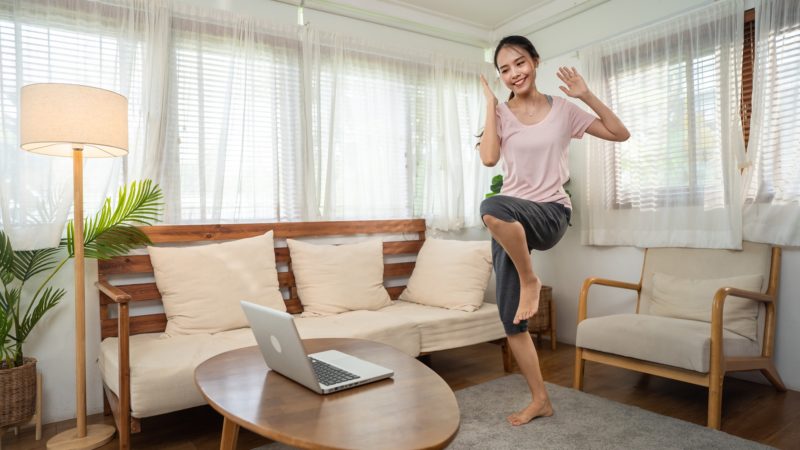Although China is no stranger to the Indian cultural discipline of yoga, the exercise has recently been emerging as a national sensation thanks to digitalisation in the fitness industry, pulling up demand for relevant products.
Sales of equipment for yoga practices, such as whale back-benders, yoga shoes, BOSU balls, and yoga bags, have seen year-on-year increases of 868%, 816%, 110%, and 104% respectively, according to the latest Spring Summer Fitness Consumption Report published by the research institute of China’s e-commerce giant JD.com.
Moreover, China’s yoga wear market scale expanded to 14.1 billion RMB ($1.7 billion) in 2021 from 2.6 billion RMB ($316 million) in 2013, with a further scale-up in 2022 to 15.6 billion RMB ($1.9 billion).
The “elegant workout” that focuses on balance and flexibility training has unsurprisingly received higher endorsement from female consumers with women between 26 and 40 years old showing the highest enthusiasm. This is also partly due to yoga being deemed as an ideal choice for women who want to pursue a well-toned body shape, instead of bulky chests and arms that tend to be more desired by their male counterparts.
Meanwhile, major Chinese cities such as Beijing and Shanghai have become hubs for yoga lovers, which houses 31.6% and 28.6% respectively of the country’s total practising individuals, as per the 2021 China Yoga Industry Report. It is understood that the middle working class with an average monthly salary of 15,000 RMB ($2,275.6) appear to be the backbone of the yoga market, making up approximately 40% of China’s yogis.
While China’s sports industry has been benefiting from the nation’s overall increased awareness of health, the yoga industry starts to take more hold as an exercise that is also suitable for home practice amidst disruptions from the global pandemic. Chinese yoga enthusiasts’ inclination to digital classes has been furthered with the development of online fitness apps such as KEEP and the country’s emerging fitness live streaming industry that is being led by the now dubbed “Li Jiaqi in the fitness industry” – Liu Genghong.









